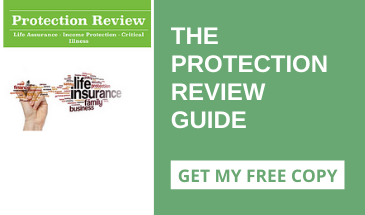Put Your Basic Financial Planning "House in Order" during "Lockdown"

As the UK lockdown measures continue you may find yourself with some available downtime. During this period, we at Integritas believe that it would be a worthwhile exercise to put your basic financial planning "house in order" with the help of our simple checklist.
1. Household Budget Review
With the extra time on our hands, now would be a good time to go through the rather boring exercise of seeing what your household expenditure is. This may be especially important if you are currently experiencing a cut in income because of the pandemic.
While in lockdown you are likely to save costs on some expenses, such as parking, petrol, train fares, coffees, eating out etc. Therefore, a good starting point would be to go through bank statements and review your average expenditure over the three to six months prior to lockdown to determine how much is available in disposable income to commit to financial planning arrangements or even make gifts out of income to a loved ones.
You may find this Expenditure Schedule a useful guide to conduct your household budget review.
It would also be good practice to assess elements of your expenditure that will continue into retirement so that you can accurately target the income you will require in the future.
2. Review Your Retirement Planning
Lockdown can either be a chance to spend more time with the family, enjoy your hobbies or learn a new skill – or it can leave you ready to escape and get back to work. Either way, it could be a taster of what life could be like in retirement.
Being at home under lockdown has made many reassess their careers and their retirement plans. Some have found the advantages of more family time, flexible hours, and freedom from the long daily commute. For others it is a reminder of the effects of reduced income, insufficient pension savings, and financial worries.
A couple of questions to consider:
- How much income will you need in retirement? (refer to the household budget exercise) and from when?
- Are you on track to achieve this?
- How will you retire? Here are three ways you may consider:
i) Full retirement
Many people find it difficult to retire. Simply being a worker one day and then stopping altogether the next can come as something of a shock and be very disorientating. For those putting off retirement, unsure how to fill their days, the last few weeks will have given them a good insight.
ii) Working in retirement
You do not have to stop work if you retire. Today’s retirees are healthier and more active than ever before, and even before the pandemic, many were choosing to continue working after retiring. Some people simply work past 65 because they love what they do, while others move into part-time jobs that let them explore hobbies and other interests while still earning, boosting their retirement and savings accounts.
iii) Phased retirement
Phased retirement is a variation on working in retirement, which lets you keep the job you love, with the challenges and responsibilities. However, gradually reducing the hours you work, phasing into retirement and spending more of your time at home.
Flexibility at the beginning of retirement will allow you and your partner time to adjust to each other’s routines – which can be vital for a successful life as a retired couple!
If you need help when reviewing your retirement planning, please get in touch.
3. Review Existing Protection Policies
Are you still paying for a protection policy you took out many years ago? Do you know what you are covered for and whether this is sufficient for your current needs? Or do you have an old mortgage endowment policy which you keep receiving annual statements for?
Whenever your personal and/or financial circumstances change you should review your protection policies to ensure they still meet your requirements. Changes of circumstances may be:
- A new job or changing to self-employment.
- Marriage or divorce.
- Children or grandchildren.
- A change in either yours or your partner’s health.
- Paying off a debt or other liability.
- Moved to a new house or buying/selling property.
- You may have sold your business and be considering retirement.
- Making financial gifts from your estate.
Given the current pandemic now might be a good time to review your protection policies to ensure you are adequately covered if you make a claim. If you cannot locate your original policy documents, you should contact your insurance provider to find out what exactly you are covered for.
As you review these policies, you should also check if your life assurance policies are held in trust. Ensuring these policies are written under trust will:
- Ensure policy proceeds are paid to the designated beneficiaries in accordance with your wishes
- Avoid a potential delay in proceeds being paid due to a time-consuming probate process.
- Avoid the proceeds increasing the liability of your estate to taxes.
Alternatively, if you would like help reviewing your protection policies please get in touch.
4. Consider New Protection Policies
If you do not have any protection policies currently in place, then this is something that you may wish to consider. Putting in place a basic level of protection is probably more affordable than you think, and you could buy certain life insurance for just a few pounds a month.
There is currently a ‘protection gap’ in the UK. This means that a large proportion of the UK would be left financially vulnerable should they, or their spouse die prematurely or suffer an illness or injury that would affect their ability to earn. Despite this apparent financial vulnerability and need for a safety net, a research study1 by the Financial Conduct Authority (FCA) highlighted that 65% of the UK adult population has no form of protection insurance in place compared to 27% not having contents insurance.
Given the recent COVID-19 pandemic and the increasing levels of staff furloughed or made redundant now could be the time to consider your ongoing protection needs for you and your family.
If you haven’t seen it already, please click Protection Review Guide to read our guide designed to highlight the issues that might concern you and introduce you to the different types of cover available to help secure your family's future.
5. Consider making gifts
Now might be a time that someone close to you needs some financial support more than ever and you may want to help. Making an outright gift from capital is usually classed as a Potentially Exempt Transfer for Inheritance Tax (IHT) purposes. This means that if you were to die within seven years of making the gift, it would form part of your estate for IHT purposes unless the gift qualifies for an exemption.
One such exemption is the IHT exempt annual allowance of £3,000 per person per tax year. Everyone can make an outright gift of £3,000 per annum which is immediately exempt from their estate for IHT purposes. In addition, once the current year's allowance has been maximised, you are able to utilise any unused allowance meaning the first gift could amount to £6,000, which is immediately exempt from IHT.
Each tax year you can also give away up to £1,000 per person in consideration of marriage or civil partnership (or up to £2,500 for a grandchild and up to £5,000 for your son or daughter).
Finally, where you have the disposable income to do so, gifts out of income could also be immediately exempt from IHT provided the gifts are from disposable income, the intention is to establish a regular pattern of gifting and, they do not adversely impact on your standard of living.
Please visit https://www.gov.uk/inheritance-tax/gifts for further of gift allowance.
If you would like to discuss any of the topics mentioned above please contact
e: enquiries@integritasfp.co.uk
t: 01283 372668.
1 FCA Understanding the financial lives of UK adults: Findings from the 2017 Financial Lives Survey.




